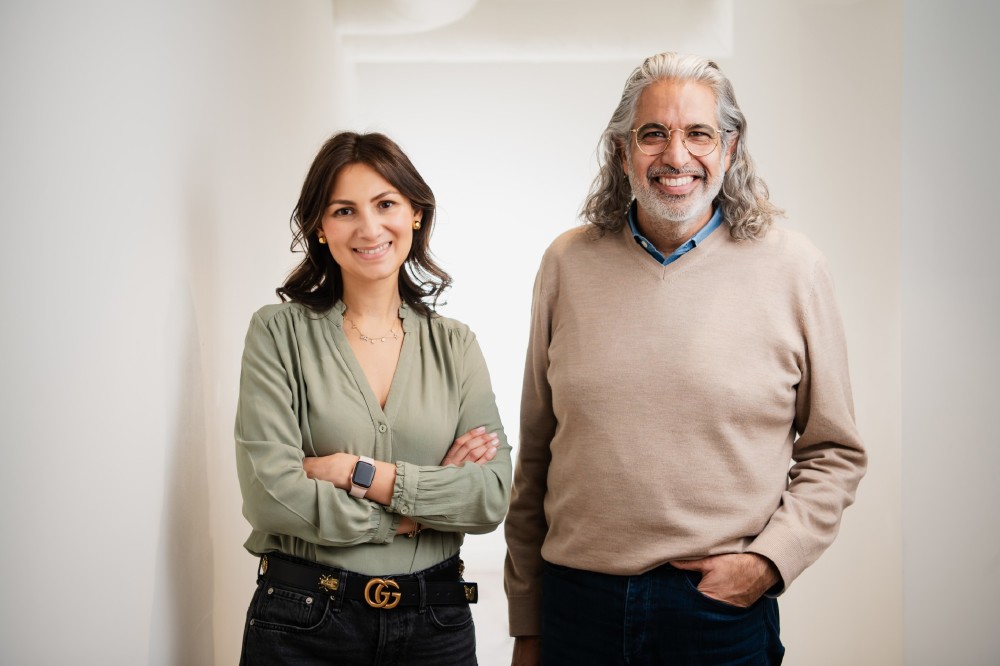Female First speaks to a certified divorce coach from Pivot, to discover more about the art of separation and why increasingly more people are turning to a divorce coaching to enable them to ‘divorce differently’.
Chloe O - Divorce Coach from Pivot
As a Certified Divorce Coach, I've witnessed first-hand the transformative power of guiding individuals through one of the most challenging periods of their lives. If you’ve never heard of divorce coaching before, let me take you through what it entails and why it’s becoming a popular choice for those navigating the stormy seas of separation.
Divorce coaching is a form of emotional and practical support tailored specifically to individuals or couples going through a divorce. Unlike psychotherapy, which supports a person through emotional healing, divorce coaching can also be emotionally supportive but it also offers up a practical and informative way to work, one that is future-focused and goal-orientated. It’s about helping clients make clear, empowered decisions during their divorce process and preparing them for their new lives, post-divorce.

In the USA, divorce coaching has become a well-recognised resource, with the American Bar Association officially recognising it as an Alternative Dispute Resolution process since 2013. The UK is starting to see a similar trend, as more people realise the benefits of having a dedicated professional to navigate the intricacies of divorce, beyond the strictly legal aspects.
The Growing Trend: Divorcing Differently
More and more, we’re seeing couples and individuals choosing to divorce differently. Traditional adversarial divorces, filled with conflict and animosity, are slowly giving way to more amicable, cooperative separations. This shift is evident even among celebrities, who often set trends in societal behaviours. High-profile couples like Gwyneth Paltrow and Chris Martin, who famously embraced Katherine Woodward Thomas’ concept of "conscious uncoupling", have used approaches akin to divorce coaching to part ways in a respectful and cooperative manner. Their example has highlighted the possibility of a less contentious, more collaborative divorce process.
Real-Life Case Studies
To illustrate the impact of divorce coaching, let me share a real-life example (names have been changed for privacy):
Case Study: Jane's Journey
Jane came to me with a heavy heart and a daunting task ahead of her: she wanted to leave her husband but she had no idea how to initiate the conversation or handle the subsequent process. Married for 18 years, Jane felt trapped in a relationship that no longer served her but also feared a life without her long term partner by her side. Our initial sessions focused on her emotional readiness and the clarity of her decision. We worked on understanding her reasons and exploring what her life might look like if she stayed or if she left.
As Jane gained confidence, we developed a strategy for her to approach her husband with honesty and compassion so as to avoid triggering a conflictual reaction. We role-played the conversation, addressing various potential responses from her husband. When Jane finally sat down with him, she was prepared and able to communicate her feelings clearly and calmly. The conversation, while difficult, was less traumatic than she had feared and opened the door for respectful interactions going forward.
In parallel to preparing for the announcement, we worked on planning the logistics of the divorce process, managing emotional fallout, and setting goals for Jane’s new life. I shared information with her about the various options for reaching a divorce agreement out of court, helped get her into the right mindset so she entered the process with appropriate expectations, and built her divorce team. Using the skills she acquired through our coaching sessions, Jane successfully leveraged their Family Mediation meetings to reach a negotiated divorce settlement with her husband.
What are the Benefits of Divorce Coaching?

What makes divorce coaching so beneficial? Here are some of the key advantages:
- Emotional Support: A divorce coach provides a steady hand and empathetic ear, helping clients manage their emotions and stress.
- Fact-based decision-making: A coach helps clients gain clarity on their goals and priorities, ensuring they make informed, considered and future-tested decisions.
- Communication Skills: Coaches assist clients in developing better communication strategies to reduce conflict during and after the divorce.
- Negotiation skills: Divorce coaches support their clients in developing robust proposals for the negotiation process and in approaching negotiation meetings calmly and prepared.
- Strategic Planning: From understanding legal processes to financial planning, a divorce coach helps clients navigate the practical aspects of divorce. Divorce coaches work with a multitude of other divorce professionals and help their clients build the right divorce team for their situation, signposting to appropriate support as needed.
What Happens in a Typical Session?
A typical divorce coaching session is a blend of emotional support, practical advice, and strategic planning. Here's a snapshot of what you might expect:
*Goal Setting: The coach works with the client to set realistic and achievable goals, both short-term and long-term. This includes defining what they want their life to look like after the divorce but also how they want the divorce process itself to ideally unfold.
*Emotional Check-Ins: Each session includes time to discuss emotional wellbeing. This could involve exploring feelings of anger, sadness, or guilt, and finding healthy ways to cope.
*Skill Building: We work on specific skills such as effective communication, conflict de-escalation, negotiation techniques, and stress management.
*Action Planning: Every session ends with a clear action plan, ensuring clients have concrete steps to take before the next session.
Top Tips for Working with a Divorce Coach
If you're considering divorce coaching, here are a few tips to help you get the most out of the experience:
- Ask About Their Experience: Ensure your coach is specifically qualified as a Divorce Coach. Ask about their niche and specialisation to understand if they are the right person to help you.
- Clarify Your Goals: Be clear about what you want to achieve through coaching. This helps the coach tailor their approach to meet your needs.
- Commit to the Process: Coaching is a collaborative effort. Commit to the process and be prepared to put in the work between sessions.
- Prepare for Sessions: Come to each session with specific questions or issues you want to address. This ensures you make the most of your time with the coach.
Divorce is undeniably tough, but it doesn't have to be destructive. Divorce coaching offers a pathway to navigate this life transition with clarity, support, and empowerment. Whatever stage of the divorce process you are at, a divorce coach can help you approach this transition differently – with less conflict, reduced costs and faster progress. Reaching out to a divorce coach might just be the best decision you make during this challenging time.
For More Info:
Pivot is a ground-breaking platform and the first holistic marketplace designed to support individuals navigating the complexities of divorce and separation. Pivot connects people embarking on divorce with leading divorce coaches, consultants and experts, offering a streamlined solution to save time, money, energy and alleviate stress during one of life's most challenging transitions. Individuals or couples can book ad hoc one-to-one meetings with our divorce coaches and consultant, a bundle of sessions or one of our packages. For more information, please visit www.yourpivot.co
Chloe O, separation and divorce coach can be contacted via the Pivot platform click Here
Tagged in Divorce

